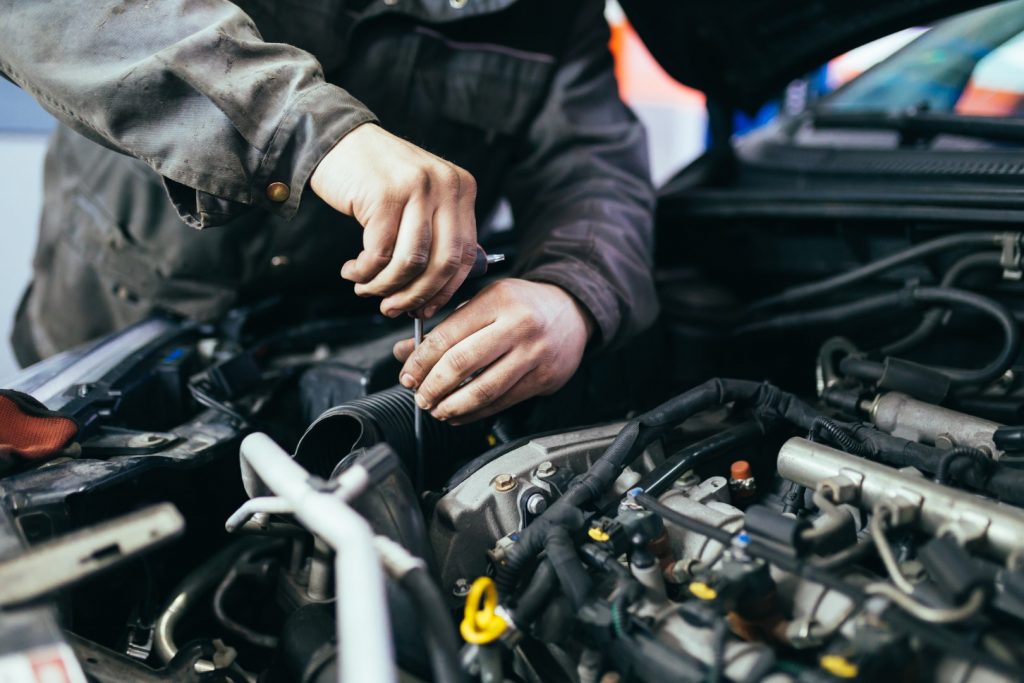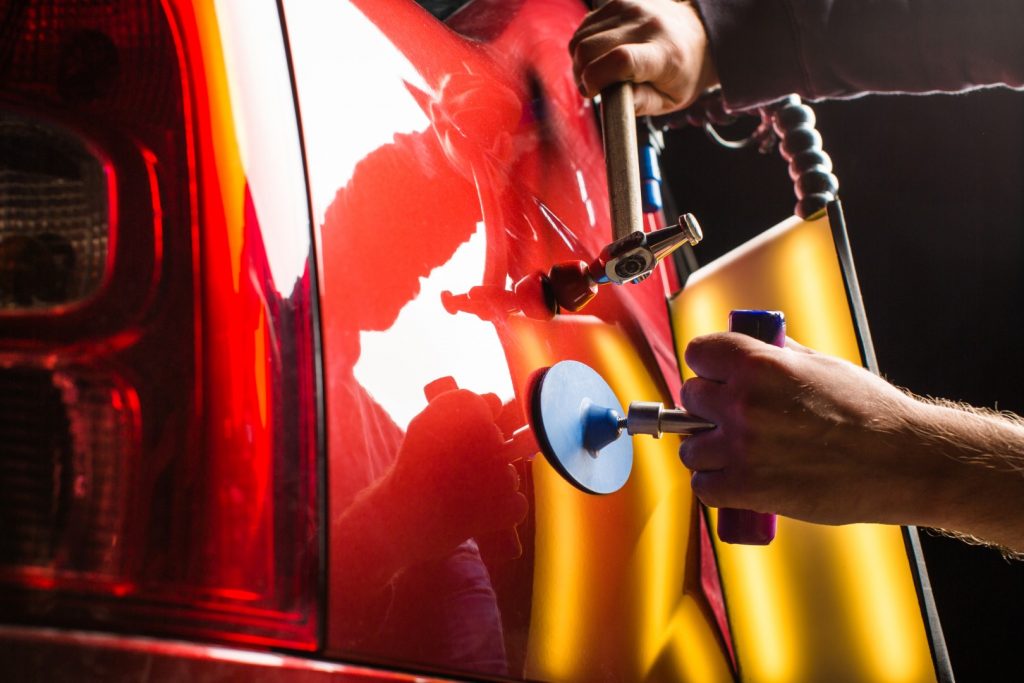A car’s value starts depreciating right from the moment it leaves the manufacturer’s lot. Apart from the fact that time is a big enemy of a car’s value, other modifications that car owners do to their cars to keep them running as long as possible also add to its depreciation rate. It’s very uncommon to find a car owner that has never repaired one or more parts of their car.
Most extensive maintenance and repairs change the condition of cars, but the reality is that auto repairs can’t be avoided. It isn’t convenient for everyone to change their cars simply because of a malfunctioning part. Repairing the damaged and faulty parts of a car is one of the ways to keep it functioning.
Fortunately, there are ways to manage the effects of repair on your car’s value. This can be done by implementing repair strategies that will still maintain the car’s worth and looks. Here are four trusted ways to repair a car without depreciating its value.
1 Dent Repair
No matter how careful you are as a driver, car dents are inevitable. It can happen for several reasons. Another driver can hit your car from the back, a car door can bump into yours, collision with heavy objects can happen, and children can leave scratches on the body.
Dents can be repaired, but they usually leave marks on the car’s body which affects the appearance of a vehicle. This is why you should do the paintless dent repair method. This technique removes dents on your car without damaging the paint’s surface. It’s an advanced way of repairing minor car dents such as hail damage, door dings, minor creases, small dents, and other surface damages, without doing much harm to the looks and value of the car.
With a competent technician, paintless dent repair is a very effective technique of restoring the body of a car to its factory condition. This means the value of your vehicle remains intact even after altering the original look.
2. Oil Filter Change
Changing the oil filter is one of the most common car repairs that doesn’t alter the functionality of a car, thereby, sustaining its appreciative value. Oil is a vital lubricant that’s meant to be changed frequently. Your mechanic can help you in the process of changing the old oil and the oil filters. A renewed oil and filter will keep the engine compartments cool, increase fuel efficiency and promote the longevity of your car.
Changing the oil of your car is essential to avoid damaging the engine. When your vehicle’s oil turns into sludge as a result of long-term usage, the oil won’t work as a lubricant anymore. Instead, it will make your engine work double-time and eventually break it down.
Sadly, engine issues are difficult to resolve. And even if you successfully resolve the problem or buy another engine, you may not get an engine as good as the one that came with the car. Besides, any repair that will require you to change your engine will significantly affect the car’s value. This is why changing your oils and oil filters is essential if you want to keep your car from depreciating in value.
3. Tire Repair Or Replacement
It’s natural to want to change your tires after a while. However, you have to consider several factors before deciding to go for tire replacement or repair.
Repairs are mostly limited to tread spots only. Besides, not all tires can be repaired. Some tire conditions will require a replacement. It all depends on the extent of the tire injury. This is why you need to ensure your mechanic is competent enough to handle any repair you need without compromising the quality of the tires.
However, if you’re replacing the tires, then make sure you don’t just go for the first set of tires that fits. If possible, try to get the exact type of tires (or something close) that came with the vehicle from the factory. This will ensure that you retain the value of your car despite changing the tires.
4. Wiper Blades Replacement
Having the wiper blades of your car replaced at the required time is also important to keep the vehicle in good condition. Driving with worn-out wiper blades places you at risk of accidents that can occur due to impaired visibility. Wiper blades wear out within months of usage after wiping off dust, rain, snow, ice, pollen, and debris from your windscreen.
A wiper blade replacement is one of the modifications that can’t depreciate the value of your car; it maximizes its value. Besides protecting you and your car from accidents, it’s also one of those things potential buyers will check out before determining how much your car’s worth, in case you decide to sell it. Impaired wiper blades can devalue your vehicle and pass off the impression that a car isn’t cared for.
Conclusion
The best way to ensure repairs can’t depreciate the value of your car is by making sure the repairs you do are adding value to it. This implies that the repairs must be done to keep the vehicle in the condition it was bought. A great repair servicing history is one way to top up your car’s value, especially if you want to resell it. Always engage with competent mechanics to ensure your car’s worth remains intact.


